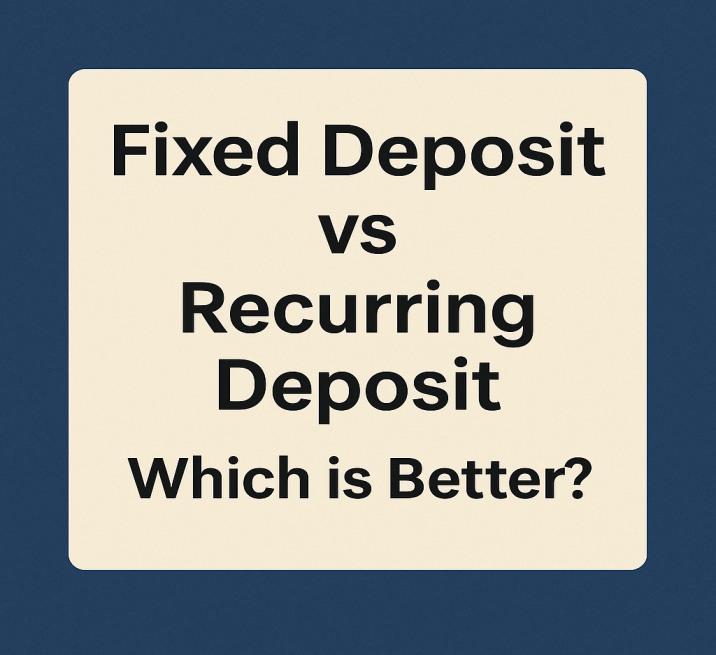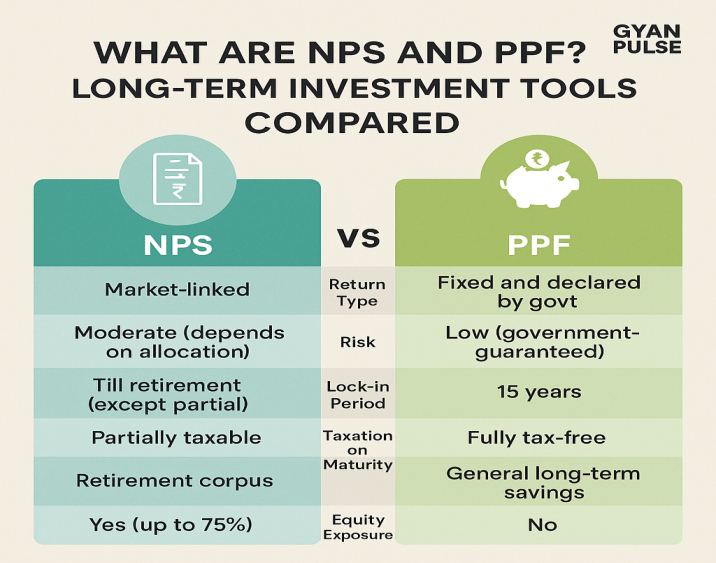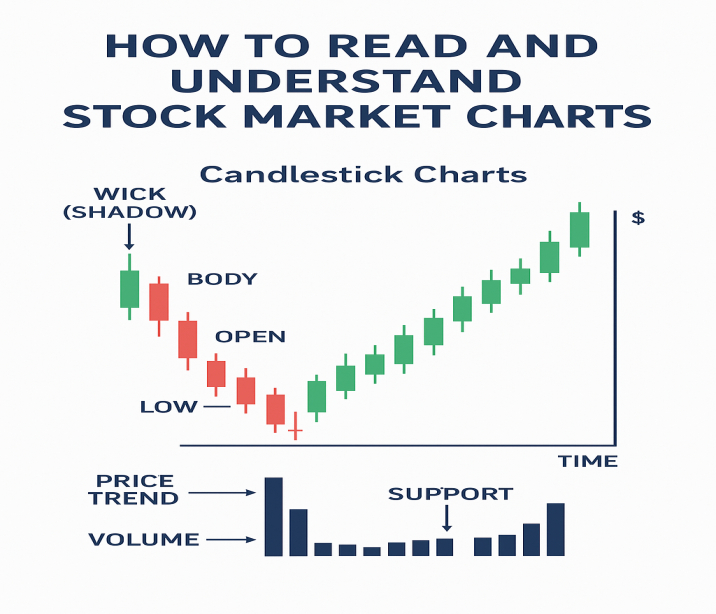Fixed Deposit vs Recurring Deposit – Which is Better for Beginners? Full details updated 2025
Fixed Deposit vs Recurring Deposit – Which is Better for Beginners? Full details updated 2025.
Fixed Deposit vs Recurring Deposit
If you’re new to saving or investing money, two popular and low-risk options offered by banks are Fixed Deposits (FDs) and Recurring Deposits (RDs). Both help you grow your savings safely, but they work differently and suit different financial goals.
Let’s understand what they are, how they differ, and which one might be better for you.
Table of Contents
What is a Fixed Deposit (FD)?
A Fixed Deposit (FD) is a lump sum investment made with a bank or financial institution for a fixed period at a fixed interest rate. The interest is earned on the entire amount deposited.
Key Features of FD
- One-time lump sum deposit.
- Tenure ranges from 7 days to 10 years.
- Interest is higher than regular savings accounts.
- Option for monthly, quarterly, or cumulative interest payout.
- Premature withdrawal possible (with penalty).
What is a Recurring Deposit (RD)?
A Recurring Deposit (RD) allows you to deposit a fixed amount every month for a fixed period. It’s perfect for people who want to build a habit of saving.
Key Features of RD
- Monthly deposits (fixed amount).
- The duration can be as short as 6 months or as long as 10 years, depending on the plan you choose.
- Interest rate similar to FDs.
- Ideal for salaried individuals or students.
- Premature closure allowed (with penalty).
FD vs RD – A Comparison Table
| Feature | Fixed Deposit (FD) | Recurring Deposit (RD) |
|---|---|---|
| Deposit Type | One-time lump sum | Monthly fixed amount |
| Tenure | 7 days to 10 years | 6 months to 10 years |
| Ideal For | People with surplus funds | People with regular income |
| Interest Rate | Slightly higher than RD | Slightly lower than FD |
| Liquidity | Medium (penalty on early) | Medium (penalty on early) |
| Compounding Benefit | More due to full deposit | Less, as monthly deposits |
| Risk | Very Low | Very Low |

Advantages & Disadvantages
Fixed Deposit – Advantages
- High interest on full amount.
- Ideal for lump sum savings.
- Flexible tenure options.
Fixed Deposit – Disadvantages
- Requires a large amount upfront.
- Early withdrawal penalty.
Recurring Deposit – Advantages
- Ideal for disciplined saving.
- Suitable for small monthly investments.
- No need for a large amount at once.
Recurring Deposit – Disadvantages
- Returns slightly lower than FD.
- Missed payments may lead to penalties.
Which is Better for You – FD or RD?
Choose FD if:
- You have a large sum of money saved.
- You want to lock it in for higher returns.
- You’re investing for a short- or medium-term goal.
Choose RD if:
- You want to save regularly every month.
- You don’t have a lump sum to invest.
- You’re building a habit of saving.
Example
Suppose you invest ₹50,000 in an FD at 6.5% interest for 1 year — you earn full interest on ₹50,000.
But if you invest ₹4,000 per month in an RD for 12 months, the average balance over time is lower, so interest earned is slightly less.
Final Thoughts
Both Fixed Deposits (FDs) and Recurring Deposits (RDs) are safe and reliable ways to save money, offering guaranteed returns with very low risk. For a beginner:
- FD is better if you have savings already.
- RD is better if you want to develop a savings routine.
Start with what suits your situation, and as your income grows, consider diversifying into other instruments like Mutual Funds or PPF too.
Learn more about Finance
![]()



